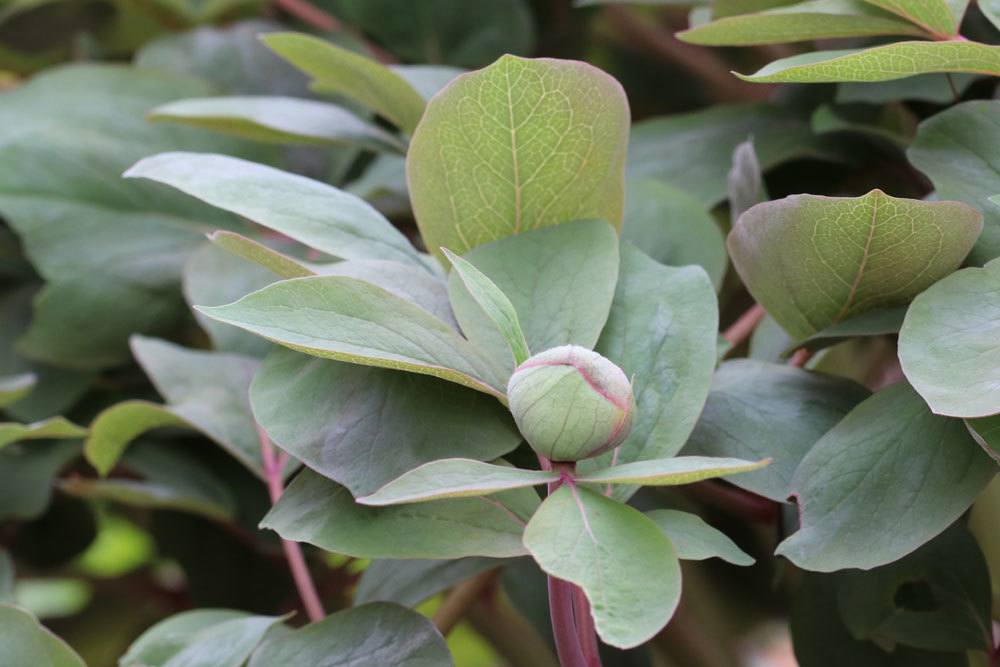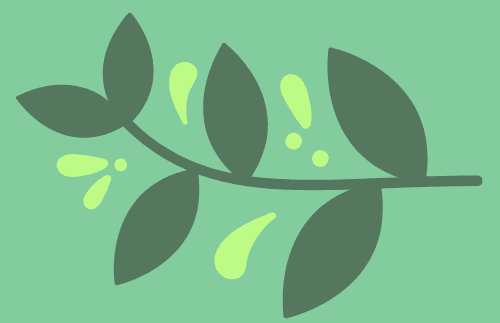Last updated on October 23rd, 2023 at 08:34 pm
Contents
Alkaloid paeonine spoils the appetite
The blossoms of numerous plants have found their way into modern cuisine to artfully decorate cold and hot dishes. Consequently, it is tempting to also use the majestic blossoms of a peony to add culinary zing to fresh dishes.
Similarly, the lush green leaves might tempt you to prepare them as a salad or turn the fleshy roots into a tasty vegetable. Admittedly, this plan could be hard on you and your guests’ stomachs. Peonies contain the alkaloid paeonine in all parts, which is toxic to humans in large quantities.
Intentional or unintentional consumption causes these unpleasant symptoms of poisoning:
- Violent nausea
- Stomach and intestinal cramps
- Vomiting and diarrhea
- Severe colic
A single petal or a few seeds of a Paeonia will not cause these symptoms. However, there is a lack of sound, scientific evidence as to where the critical dose begins. Therefore, especially in family gardens with young children, it is wise to locate peonies out of reach of small arms and sparrow-wide mouths. Older children should be specifically made aware of the dangers of eating the flowers, leaves, seeds and roots.

Tips for first aid measures
If adults or children show typical symptoms of poisoning, please remain calm. Due to the low concentration of toxic substances, no life-threatening incidents have been reported so far. The following prudent measures will keep the extent of health discomfort resulting from peony consumption within tolerable limits.
Measures:
- In the case of children, remove any plant debris from the mouth.
- Drink still water or chamomile tea in small sips
- milk is completely unsuitable as an antidote
Do not induce vomiting in affected people with the help of salt water.
As a precaution, contact your family doctor or pediatrician by telephone even if the symptoms are minor. If the doctor recommends a visit to the doctor’s office, take the plant parts with you in a bag. If in doubt, call the appropriate poison control center for competent advice.
Toxic to dogs and cats
Just as the substances in peonies affect our stomachs, dogs and cats are not immune either. The smaller the animal, the greater the risk of poisoning symptoms. Thus, puppies and young kittens are primarily at risk, as they are extremely curious and have not yet received extensive education.
Older pets are rarely affected when they snack on a farm rose. Since Paeonia are classified as mildly toxic, health-threatening amounts are rarely consumed.
Tips for immediate action
If your pet is noticeable with typical poisoning symptoms, immediately check the mouth to see if there are any plant debris inside. Retrieve these and secure the material in a plastic bag. Signs of poisoning include increased salivation, convulsive movements, apathy and disorientation.
Transport the dog or cat to the nearest veterinarian as soon as possible and take the secured plant material with you. Attempts at self-medication could make the dilemma worse.
Poisonous for horses
Peonies are classified as mildly toxic plants for horses. Compared to dogs and cats, a steed may seem huge; nevertheless, the animals are very sensitive to gastric toxins. Thus, just a few morsels of ivy can kill a horse in agony. Paeonia is far from such a potential danger. Nevertheless, the plant parts should be kept out of reach of the animals. This includes that cuttings should not be disposed of on horse paddocks and meadows.
Life-threatening for small animals
Life-threatening for hamsters, guinea pigs and rabbits
Peony leaves are definitely not suitable as green food. All parts of the plant pose a deadly danger to rodents, such as hamsters, guinea pigs and rabbits. Therefore, please make sure that animals do not come within reach of peonies, even in outdoor enclosures. It is not safe to assume that their instinct will sound the alarm, given the tempting leaves.
In expert hands a medicinal plant
Even in the Middle Ages, peonies were believed to have magical powers. For example, the legendary healer Hildegard von Bingen swore by the medicinal efficacy of the red-flowered Paeonia officinalis to cure fever, gout, falling sickness, children’s and women’s diseases.
All parts of the plant were used, such as flowers, leaves, seeds and roots, because they are permeated with alkaloids, glycosides, tannins and essential oils. In the absence of credible evidence for a medical indication, the peony disappeared again from the pharmacy books.
It is strongly advised not to prepare them yourself, as the plant parts can do more harm than good if used in the wrong dosage. This also applies to the roots of Chinese shrub peonies, which to this day occupy an important place in Asian medicine.
In traditional Chinese medicine, peonies have been highly valued for more than 1,200 years and are still included as a partial component in 40 percent of all prescriptions. It is true here, as it is for the European perennial Paeonia, that they are toxic to humans and animals if not processed properly.


